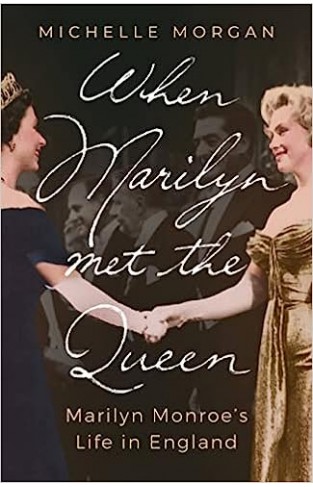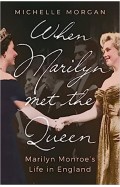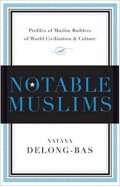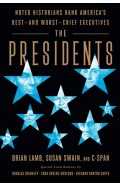When Marilyn Met the Queen - Marilyn Monroe's Life in England
By: Michelle Morgan
-
Rs 2,205.75
- Rs 2,595.00
- 15%
You save Rs 389.25.
Due to constant currency fluctuation, prices are subject to change with or without notice.
'England? It seemed to be raining the whole time . . . Or maybe it was me'
MARILYN MONROE
In July 1956, Marilyn Monroe arrived in London, on honeymoon with her husband Arthur Miller, to make The Sleeping Prince (later released as The Prince and the Showgirl) with Laurence Olivier.
When the couple arrived at London Airport, they were looking forward to a peaceful stay. Marilyn would work during the day at Pinewood Studios, while Arthur would write. Then, in the evening, the couple would be able to relax together in their private English country cottage. It didn't quite turn out that way.
The 'cottage' was actually a mansion, which belonged to Lord Drogheda, the managing director of the Financial Times. Raised in tiny hotel rooms and apartments, Marilyn felt herself being watched. She was, by Lord Drogheda's servants, who were selling stories to the papers.
When filming began, it was a disaster. Director Joshua Logan had written to Olivier, offering advice on how to handle Marilyn as an actress, but Olivier ignored him. Instead, he condescended to her in his introduction to the cast, pooh-poohed her views on acting, and dismissed her stage-fright as an inconvenience. Marilyn grew to hate Olivier with a passion; the feeling was mutual.
Marilyn found herself torn between settling into married life, being a curiosity for the frequently hostile British press, and her work on The Prince and the Showgirl. She took solace in small acts of kindness from members of the public, and a new fascination with Queen Elizabeth.
Marilyn made a point of adopting some of the Queen's favourite brands, buying gloves from Cornelia James, perfume from Floris, and switching from Chanel No. 5 to Yardley's Lavender. Marilyn made a point of asking the film's PR manager to add a royal meeting to her schedule, but each day Olivier would delete the request.
Michelle Morgan describes Marilyn's trip to late-1950s' Britain in evocative detail, exploring the making of the film alongside the film star's troubled private life and her quest to meet the Queen.
'England? It seemed to be raining the whole time . . . Or maybe it was me'
MARILYN MONROE
In July 1956, Marilyn Monroe arrived in London, on honeymoon with her husband Arthur Miller, to make The Sleeping Prince (later released as The Prince and the Showgirl) with Laurence Olivier.
When the couple arrived at London Airport, they were looking forward to a peaceful stay. Marilyn would work during the day at Pinewood Studios, while Arthur would write. Then, in the evening, the couple would be able to relax together in their private English country cottage. It didn't quite turn out that way.
The 'cottage' was actually a mansion, which belonged to Lord Drogheda, the managing director of the Financial Times. Raised in tiny hotel rooms and apartments, Marilyn felt herself being watched. She was, by Lord Drogheda's servants, who were selling stories to the papers.
When filming began, it was a disaster. Director Joshua Logan had written to Olivier, offering advice on how to handle Marilyn as an actress, but Olivier ignored him. Instead, he condescended to her in his introduction to the cast, pooh-poohed her views on acting, and dismissed her stage-fright as an inconvenience. Marilyn grew to hate Olivier with a passion; the feeling was mutual.
Marilyn found herself torn between settling into married life, being a curiosity for the frequently hostile British press, and her work on The Prince and the Showgirl. She took solace in small acts of kindness from members of the public, and a new fascination with Queen Elizabeth.
Marilyn made a point of adopting some of the Queen's favourite brands, buying gloves from Cornelia James, perfume from Floris, and switching from Chanel No. 5 to Yardley's Lavender. Marilyn made a point of asking the film's PR manager to add a royal meeting to her schedule, but each day Olivier would delete the request.
Michelle Morgan describes Marilyn's trip to late-1950s' Britain in evocative detail, exploring the making of the film alongside the film star's troubled private life and her quest to meet the Queen.
When Marilyn Met the Queen - Marilyn Monroe's Life in England
By: Michelle Morgan
Rs 2,205.75 Rs 2,595.00 Ex Tax :Rs 2,205.75
Zubin Mehta: A Musical Journey (An Authorized Biography)
By: VOID - Bakhtiar K. Dadabhoy
Rs 892.50 Rs 1,050.00 Ex Tax :Rs 892.50
Notable Muslims: Muslim Builders of World Civilization and Culture
By: Natana Delong Bas
Rs 807.50 Rs 950.00 Ex Tax :Rs 807.50
The Presidents: Noted Historians Rank America's Best--and Worst--Chief Executives
By: Brian Lamb
Rs 1,747.50 Rs 3,495.00 Ex Tax :Rs 1,747.50
The FBI Way - Inside the Bureau's Code of Excellence
By: Frank Figliuzzi
Rs 1,950.75 Rs 2,295.00 Ex Tax :Rs 1,950.75
The Origins of Political Order From Prehuman Times to the French RevolutioN
By: Francis Fukuyama
Rs 4,045.50 Rs 4,495.00 Ex Tax :Rs 4,045.50
Manning Up: How the Rise of Women Has Turned Men into Boys
By: Kay Hymowitz
Rs 845.75 Rs 995.00 Ex Tax :Rs 845.75
The Obama Syndrome: Surrender At Home War Abroad
By: Tariq Ali
Rs 1,100.75 Rs 1,295.00 Ex Tax :Rs 1,100.75
The Quest For Meaning: Developing A Philosophy Of Pluralism
By: Tariq Ramadan
Rs 1,185.75 Rs 1,395.00 Ex Tax :Rs 1,185.75
The Pakistan US Conundrum Jihadists The Military And The People The Struggle For Control
By: Yunas Samad
Rs 1,185.75 Rs 1,395.00 Ex Tax :Rs 1,185.75
An Enemy We Created: The Myth Of The Taliban Al Qaeda Merger In Afghanistan 19702010
By: Alex Strick van Linschoten
Rs 4,197.50 Rs 8,395.00 Ex Tax :Rs 4,197.50
WikiLeaks: Inside Julian Assanges War on Secrecy
By: David Leigh & Luke Harding
Rs 637.50 Rs 850.00 Ex Tax :Rs 637.50
Notable Muslims: Muslim Builders of World Civilization and Culture
By: Natana Delong Bas
Rs 807.50 Rs 950.00 Ex Tax :Rs 807.50
The Presidents: Noted Historians Rank America's Best--and Worst--Chief Executives
By: Brian Lamb
Rs 1,747.50 Rs 3,495.00 Ex Tax :Rs 1,747.50
The FBI Way - Inside the Bureau's Code of Excellence
By: Frank Figliuzzi
Rs 1,950.75 Rs 2,295.00 Ex Tax :Rs 1,950.75
No recently viewed books available at the moment.
Zubin Mehta: A Musical Journey (An Authorized Biography)
By: VOID - Bakhtiar K. Dadabhoy
Rs 892.50 Rs 1,050.00 Ex Tax :Rs 892.50
When Marilyn Met the Queen - Marilyn Monroe's Life in England
By: Michelle Morgan
Rs 2,205.75 Rs 2,595.00 Ex Tax :Rs 2,205.75
Notable Muslims: Muslim Builders of World Civilization and Culture
By: Natana Delong Bas
Rs 807.50 Rs 950.00 Ex Tax :Rs 807.50
The Presidents: Noted Historians Rank America's Best--and Worst--Chief Executives
By: Brian Lamb
Rs 1,747.50 Rs 3,495.00 Ex Tax :Rs 1,747.50
The FBI Way - Inside the Bureau's Code of Excellence
By: Frank Figliuzzi
Rs 1,950.75 Rs 2,295.00 Ex Tax :Rs 1,950.75














-120x187.jpg?q6)








-120x187.jpg?q6)



-120x187.jpg?q6)



